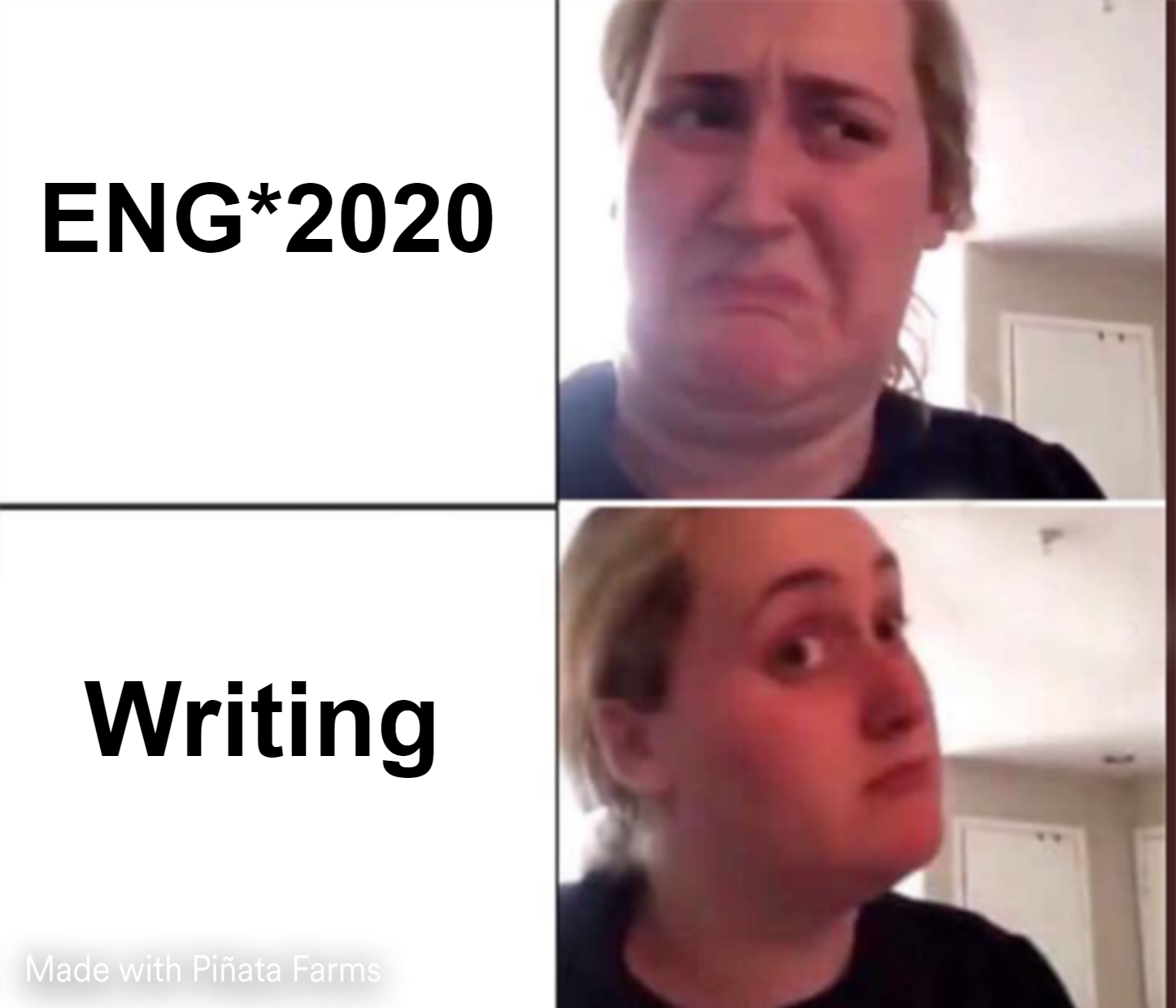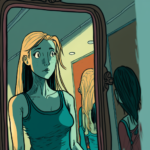Eons ago, I was a freshman entering my sophomore year of college, ready for my next set of classes like any annoyingly ambitious English nerd. I sat in my advisor’s cozy office, which looked like any typical English advisor’s space – shelves laden with books on writing theory, semi-motivational and reading related posters, a snarky Etsy mug with some quote about work, reading or writing (maybe all three!). My advisor carefully reviewed my list of intended courses before I asked a question.
“So, what is this course? I saw it on my academic plan but could not find anything about it,” I asked, pointing at the “ENG*2020?” that I put on my course list.
“Ah, yeah,” my advisor replied, thinking for a moment. “It’s called ‘Writing’. I can’t really say much about it, but I do l know that it’s a course that helps you develop your skills as a writer.”
That’s it?
The night before my advisement appointment, I tried to find out more about the elusive class in my college’s course catalog. When I did, the description seemed to take a shot at minimalism. ENG*2020 – Writing. Writing Intensive. Helpful for someone who is trying to understand what they are getting out of their requirement. Who knew that a course called “Writing” would be writing intensive?
Even after the appointment, I was thinking about it. Is the English department not taken seriously enough to have a proper description for what seems like an important course? Was whoever wrote it tired that day? Did they break an entire subject down to basic elements?
The Problem with “Writing”
There is so much more to writing, certainly a lot more than a semester-long course. I thought I came to college to escape that kind of cookie-cutter nonsense that comes from generalizing a subject that is still widely debated by scholars.
Elizabeth Wardle, the Howe Professor of English and Director of
the Roger and Joyce Howe Center for Writing Excellence at Miami
University, makes a sentiment that is similar to mine; it is impossible to write “in general”. Writing always has specificity to it. What and how you write changes based on various factors, such as audience and purpose.
Over time, one can learn different skills, strategies and more when it comes to writing for different contexts. There is no end-all, be-all, five-paragraph format that is the ‘gold standard’ for any writing task that you encounter. Sure, these types of templates can offer a solid start for the elementary school writer that is not sure how to format their upcoming essay, for example. However, as they progress in their writing journey, they will realize that some explanations are just not cut out for that five-paragraph ‘gold standard’. They will panic, which gives way to the “writing/English is hard” and “what’s the point of this stuff anyway?” complaints that make people resent writing completely.
Writing that Gets You in Trouble
To combat this resentment, you need make some mischief. No, not the kind that can get you a misdemeanor. For Westfield State University writing professor Catherine Savini, this is the kind of mischief that challenges you to think critically about whatever writing task you come across.
Savini’s four-step process is a strategy that helps you navigate a writing task. The first step in this process is about noticing what interests you in your task, such as any interesting or confusing words in a prompt. After that, you use whatever you find to come up with a problem that needs a solution. This can be through reviewing other texts that have contradictions to what you have or using personal experiences to create tensions. Then, you must pose questions that a problem creates for you. Finally, ask if those questions are worth pursuing. Why is it important for you and your problem?
This is just one of the many strategies to help writers navigate writing. Still, there is depth and complexity that makes writing worthwhile and not-so general. Wardle and Savini teach us is that writing is tailored to your goals with your unique strategies based on your experiences. Not even an infinite amount of credit hours can teach you that.





Leave a Reply